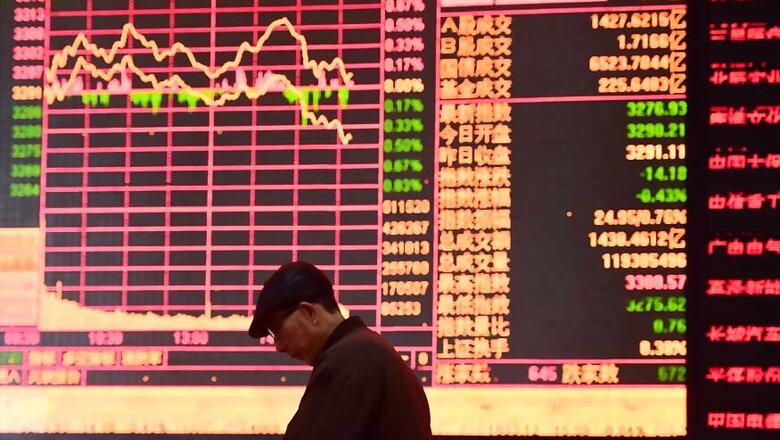
views
Hong Kong: Fresh fears of a trade war between the world's top two economies sent Asia markets tumbling on Monday after the United States and China imposed tit-for-tat tariffs on billions of dollars of imports.
Energy firms were among the biggest losers as oil prices plunged ahead of a key OPEC meeting, where Saudi Arabia and Russia are expected to lift a two-year-old production cap.
Donald Trump's decision to hit China with 25 percent levies was met with an immediate retaliation, moving the two closer to a trade war that could potentially batter the global economy.
The announcement came despite weeks of talks between the two sides. The developments sent stocks into the red across Europe and on Wall Street, and Asian investors followed suit on Monday.
Tokyo ended the morning session 0.8 percent down, while Singapore sank more than one percent, Seoul dropped 0.7 percent and Sydney shed 0.1 percent.
Manila dived more than two percent, while Wellington was 0.1 percent off. Hong Kong and Shanghai were closed for public holidays.
"Many folks will tell you this isn't a trade war. But when one side whacks a bunch of tariffs and the other side retaliates with its own set of tariffs against the other side, that looks very much to me like the battle has been joined. Whether it escalates is a different question," said Greg McKenna, chief market strategist at AxiTrader.
With traders fleeing to safer assets, the yen rose against the dollar, while the greenback rallied against most high-yielding currencies with the Australian dollar, South Korean won and Mexican peso all sharply down.
On commodity markets oil plunged again after taking a battering last week as investors fret over Russia and Saudi Arabia's expected move to ramp up output at an OPEC meeting that starts Friday.
The two major producers have kept a ceiling in place since late 2016, which has helped ease a supply glut and lift prices, which had fallen to multi-year lows.
"Russia has been aggressively affirming itself by adding oil to market ahead of the upcoming meeting and is pushing for a significant output hike, Saudi Arabia is suggesting for a modest increase and others are in favour of the status quo," said Stephen Innes, head of Asia-Pacific trade at OANDA.
"While most industry observers are expecting a production rise, the magnitude and timing of the boost remain uncertain."




















Comments
0 comment